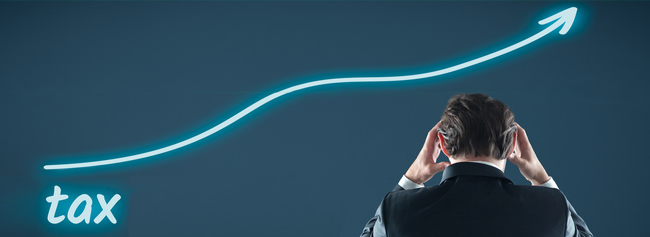
Are We Headed for Junk Status or Only Tax Increases?
"We have to show that we will stick to our undertakings on consolidation, but on the other hand we have got to be very mindful that fiscal consolidation in the absence of growth does damage growth further." (Finance Minister Pravin Gordhan in his Medium Term Budget Statement)
Firstly, what is the Medium Term Budget Statement (MTBS)? It’s a three year outlook by the Treasury of government finances and an exercise in transparency in governance. Whereas the February Budget each year is Government’s actual annual financial plan, the MTBS is an interim statement that highlights government priorities and spending plans, an advance warning if you like of what we can expect in the future.
It’s particularly important this year because this is an unprecedented time for the country as we face a ratings downgrade from the ratings agencies, low economic growth and the concerns and uncertainties arising from the Minister of Finance having been charged with fraud.
A ratings downgrade to junk status (currently we are one notch above junk) will increase the cost of debt and will almost certainly lead to a downward spiral of the Rand.
What do the rating agencies say?
There are three major agencies:
-
S&P wants to see ongoing fiscal consolidation (curbing the country’s debt level) and an end to political turmoil
-
Fitch is concerned that the current political ructions could loosen Treasury’s grip on fiscal consolidation
- Moody are the most positive of the rating agencies. South Africa has a robust democracy, fiscal stability is working and better economic growth prospects are ahead.
The agencies would also like to see impediments to economic growth, such as restrictive labour provisions, reformed.
Our economy: a report card
Since 2009, we have faced difficult times as commodity prices have plunged. This has limited GDP growth at a time when the country is spreading the net of welfare payments and has faced electricity shortages.
This has led to rising government debt, tax increases and a commitment by Treasury to control government spend.
At present government expenditure is 34% of GDP versus 31% for emerging economies. Tax collections are 30% of GDP whilst the norm is 27%. Finally, government debt to GDP is 46% and rising – the accepted figure is below 50%.
So, Minister Gordhan faces stern challenges.
The Minister’s tone and speech were different from previous interim budgets. He spoke of the nation pulling together to create a more just, transparent society which addresses inequality and allows equal opportunity.
The key statistics
- Revenue (taxes we pay) will be R23 billion below budget for this year. This will increase the deficit to 3.4% of GDP (3.2% was budgeted). The Minister forecasts this will drop to 2.5% in the budget period
- To cover the revenue shortfalls taxes will be raised by R43 billion in the next two years of which R28 billion will be implemented next year. The proposed carbon and sugar taxes will almost certainly be in the mix of tax increases
- The ceiling for expenditure will reduce by R10 billion next year and a further R16 billion in the next two years. In prior years Treasury have introduced a level (ceiling) above which spend could not go
- Inflation is forecast at 6.1% this year, 6% next year and falling to 5.9% in the final year
- Government debt to GDP will be 45.8% this year and will stabilise at just below 48% in three years
- GDP will grow 0.5% this year, 1.3% next year and 2% in 2019
- Financial assistance to students will be an extra R17 billion in the forecast period
- The freeze on government posts will remain. This is estimated to reduce government employment by 25,000 in the three year outlook
- Ongoing supply chain measures to improve efficiencies and savings.
In a difficult economic climate, the Minister showed his commitment to fiscal prudence. This is necessary for the economy but is also important for the rating agencies.
The junk status danger: Keeping the ratings agencies happy
As noted above, the agencies want to see measures to grow the economy and reduce political turmoil.
The Minister announced:
- The boards of SAA and the Post Office had been reconfigured to strengthen governance and oversight.
- The government intends to bring policy certainty to telecommunications and tourism.
- Progress has been made with labour relations as shown by a drop in strike activity following negotiations with union leaders.
- Ongoing supply chain savings following the introduction of a centralised procurement data base. Negotiations are under way with key suppliers to save R25 billion a year by 2019.
- Communications with CEOs has proven successful with R1.5 billion made available to grow small business. Ultimately, the goal is to get the private sector to start investing in the economy – private sector investment is currently very low.
- R45 billion has been set aside for industrialisation and sustainable resource management.
- R58 billion will be invested by Independent Power Producers for new energy projects which will add 2 354 MW to the power grid.
- Over R900 billion set aside for infrastructural projects.
These will remove impediments to growth in the next few years.
So how will all this affect us?
- Taxes will definitely go up. We will only learn the specifics of what taxes, and how, in the Budget Speech next February.
- Our household budgets will come under increasing strain, particularly if we sink to junk status. If that happens, prepare for a jump in interest rates, a weaker Rand, higher inflation and price increases.
- Overall, however, the Minister has lived up to the quote above and there is hope in that. The currency has (at time of writing) maintained its levels indicating that overseas and local investors are not dissatisfied with the budget.
Provided by Anovate Financial Services CC
© DotNews. All Rights Reserved.
